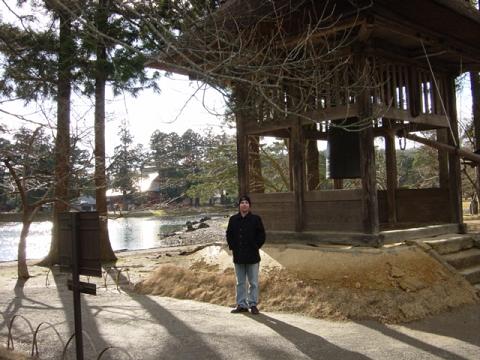Speaking with a friend here in Japan, well you could say, I was living in Japan and he was living on the soil of Japan while still living in his home country. Though he had been here for a number of years, his language ability was poor (at a level achieved by about one year of relaxed Japanese college classes) and his understanding of the culture and behavior and so on was even lower.
This is not to bash him, though I do feel that people that come here without previous knowledge of such things, or at least without a real enthusiasm towards learning.. Well, they make life harder for me, and encourage old stereotypes.
In the conversation, I had mentioned how much I appreciate the politeness of Japanese people. Shop workers and office workers speak in such a way to put you above them (teineigo - polite language, or the even more respectful keigo), people apologize through words or body talk for bumping into you, cutting in front of you, cutting between you, many drivers turn their headlights off at intersections so as to not blind the people parked or walking in front of them, they use many cushioning words if there is any bad news to bring to you, they are quick to compliment you and downplay their abilities... It's quite amazing.
My friend's response was, "Oh, you mean that fake politeness?"
Fake politeness? I was astounded. How can something be polite in a fake way? Well, if it's insincere. I can't see the entire nation of Japan treating everyone they encounter with sarcastic smiles. It obviously can't be at that level. So then, is it the inner intent? That even though they say please and thank you, they really don't feel pleased or thankful?
Well, let's look at the main entry for "polite" in the dictionary:
1. showing good manners toward others, as in behavior, speech, etc.; courteous; civil
Does doing any of the things in that definition reflect some inner intent? No, I don't think so. Politeness is a social thing, not a human-animal thing. To me, that definition perfectly fits the way that Japanese people treat strangers, customers, etc. (Horvat, mentioned below, gets this point wrong.)
The next part of my answer to that is that Japanese believe that change happens from the outside-in. It seems backward to Westerners (of course you have to change your attitude first, then your behavior follows!), but it is a viable option. Even science has shown and many smart people have attested to the fact that if you smile, your mood starts to change!
To quote Horvat from his Japanese Beyond Words in a section called TO BE IS TO APPEAR TO BE:
"... The point was made that outward forms of respect, when carefully engaged in, produce corresponding inward attitudes, Confucian doctrine that may have a sound psychological basis. My own theory, of course, was precisely the opposite, that inward attitude comes first; that the spirit determines the outward expression and the ultimate form; really significant changes of behavior must start from within. It was a discussion repeated many times over while I was in Japan, with the Japanese invariably supporting the outward forms approach and I the inner spirit. But perhaps in the end we might agree that both are necessary. "
The politeness has a special factor involved for Japanese - the way to treat strangers (tanin). It used to be that strangers were to just be basically rudely ignored (the ignore part still certainly exists, even packed so tightly in a train with others that you can't breathe, you never feel your personal space invaded and you never feel claustrophobic, a nice benefit to being able to ignore everyone around you). However, the way of treating tanin has changed. I'm talking about old history. The relationship of in-group to out-group is very important for this, but that's for another post.
I'll finish this with another quote from Zizek.
"In Japan... even if something is merely an appearance, politeness is not simply insincere. There is a difference between saying 'Hello, how are you?' and the New York taxi drivers who swear at you. Surfaces do matter. If you disturb the surfaces you may lose a lot more than you account [for]. You shouldn't play with rituals. "
Subscribe to:
Post Comments (Atom)

No comments:
Post a Comment